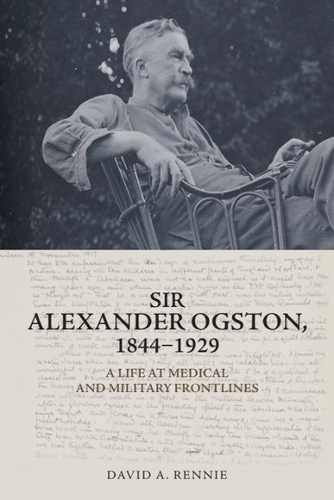
Sir Alexander Ogston, 1844-1929: A Life at Medical and Military Frontlines
(Paperback)
Publishing Details
Sir Alexander Ogston, 1844-1929: A Life at Medical and Military Frontlines
By (Author) David A. Rennie
Edinburgh University Press
Edinburgh University Press
8th December 2025
United Kingdom
Classifications
Tertiary Education
Non Fiction
Biography: science, technology and medicine
Surgery
610.92
Physical Properties
Paperback
160
Width 156mm, Height 234mm
Description
Ogston's career was of far-ranging, yet underacknowledged, excellence.
Inspired by the work of Joseph Lister and Robert Koch, Ogston determined to find the cause of post-operative infection. Working in his home laboratory, Ogston established the link between acute inflammation and suppuration and microorganisms, discovered (and named) staphylococcus (better known today in connection with MRSA), and correctly linked localised microorganism infections with blood poisoning.
Ogston served as a medical volunteer during the 1885 Soudan Campaign and, in 1892, became Surgeon in Ordinary to Queen Victoria. Although instrumental in founding the Royal Army Medical Corps in 1898, Ogston remained critical of the army medical services. These views were amply confirmed by the events of the Boer War, in which Ogston offered his medical services.
During the Great War, Ogston in his early seventies and President of the British Medical Association served as a surgeon with the British Red Cross at the Villa Trento hospital in north-east Italy a site which served as an inspiration for the British hospital in Ernest Hemingway's A Farewell to Arms.
